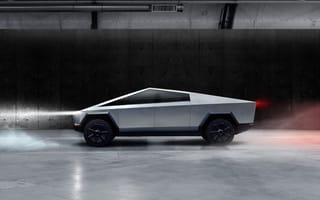
At a whopping 10,000 jobs, Austin Technology Council CEO Amber Gunst said a Tesla gigafactory would be the city’s largest tech employer. “We definitely have some very large employers. In the tech space, it would be the largest,” Gunst told Built In.
Tesla is reportedly considering sites in Austin and Tulsa, Oklahoma, as finalists for its fifth assembly plant. The Palo Alto-based electronic car maker has said the new plant will be larger than its facility in Fremont, California, which employs 10,000 workers. Tesla did not respond to an interview request from Built In about its plans.
The Tesla-Austin rumors have already been percolating for months. In February, CEO Elon Musk tweeted a single question: “Giga Texas?” In late April, Musk added fuel to the rumor mill with a tweet saying “Bravo Texas,” in response to the state reopening restaurants, retailers and other businesses during the COVID-19 pandemic.
Musk has made no secret of his disdain for the local officials who forced the closure of Tesla’s assembly plant in Fremont over health concerns, and has indicated a decision on where his company’s next gigafactory will be located was just around the corner. During the company’s first quarter earnings call on April 29, Musk said that decision could be announced as soon as this month and “certainly within three months.”
Austin Mayor Steve Adler did not respond to interview requests from Built In about what incentives the city might offer Tesla and how the move would affect the local jobs scene. But Gunst said she thought Austin’s talent and space available for the factory, as well as history of providing tech companies incentives, all offered the city a good shot at the gigafactory.
“Austin has already proved that we are great in the technical manufacturing space with Samsung, and AMD, and Dell, and Apple,” Gunst said. “We have a really strong technical workforce that is already here in the Austin market.”
She added that the city, state and county have a history of providing tech companies like Apple incentives to open facilities in Austin, including property tax abatement and tax credits for hiring locals.
“Usually it’s around hiring, that’s the primary aspect there,” Gunst said. “They’re looking for job creation.”
Gunst also noted that Austin has the space for the factory. She named the East Austin Corridor, as well as suburban Pflugerville, Cedar Park and Leander, as attractive locales for Tesla since they’re near Interstate-35, which would connect the gigafactory to other parts of the country. Musk has said Tesla is looking to open a gigafactory in the central part of the United States so it would have easy access to the east and west coasts.
Angelos Angelou, principal economic advisor of the Austin-based AngelouEconomics, said he believed suburbs like Taylor, Bastrop and San Marcos would offer the strong rail connection the gigafactory requires. He’s noted the Austin hints Musk has been dropping for months now, and is feeling optimistic.
“It’s really hard to predict what is in this guy’s mind. What I can tell you is Tesla will be welcomed in Austin,” Angelou said. “It would add to Austin’s brand and also diversify the high tech base and tech sector.”
He noted that Tesla would represent one of the largest local employers, although he noted that Apple could eventually overtake the company with its plans to grow its Austin presence by 20,000 people. Angelou also said Austin presents a strong local market for the vehicle maker, since consumers and businesses in Texas represented half of all truck purchases made in the U.S. last year.
“Texas could be a very large market for Tesla as they contemplate expanding into electronic trucks,” Angelou said.
As for the impact on the local economy, Angelou estimated that the gigafactory would bring at least $15 billion to the Austin area economy at full production.
“We are a tech city. Tulsa is more of a manufacturing city,” Angelou said. “Whatever location they pick, it needs to be an attractive location to recruit people from all over the U.S.”




